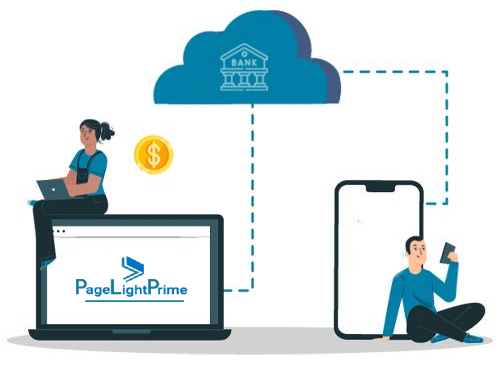Law Firm Trust Funds Management
In the fast-paced landscape of legal practice, effective management of client trust funds and retainers is not only a legal requirement but also a testament to a law firm’s commitment to integrity and transparency. In this guide, we delve into the complexities of handling client trust and retainer funds, covering best practices, legal considerations, and strategies to maintain the highest level of trust.
Written by Knowledge Team, posted on January 10, 2024

Understanding the Fiduciary Duty in Legal Practice
The foundation of trust lies in the fiduciary duty that attorneys owe to their clients. This fundamental obligation shapes the ethical and legal landscape of managing client funds. A closer examination reveals that this duty goes beyond mere financial transactions; it is a commitment rooted in honesty, transparency, and unwavering professionalism.
Exploring the Ethical Dimensions
At its core, the fiduciary duty places attorneys in a position of utmost trust. Clients rely on legal professionals to act in their best interests, both legally and financially. This section delves into the ethical dimensions of this duty, shedding light on the moral obligations that attorneys must uphold to maintain the trust and confidence of their clientele.
Legal Framework of Fiduciary Duty
An understanding of the legal framework surrounding fiduciary duty is essential for law firms. This part of the blog explores the statutes, regulations, and case law that define and reinforce the fiduciary relationship between attorneys and clients. By examining specific legal obligations, practitioners can navigate the intricate web of rules governing client funds with precision and confidence.

Emphasizing Honesty and Transparency
Honesty and transparency are the cornerstones of the attorney-client relationship. This section delves into the significance of open communication and clear financial reporting in retaining a client’s trust. By prioritizing these principles, law firms can demonstrate a commitment to their fiduciary duty and foster long-lasting relationships with clients.
Professionalism in Client Fund Management
Beyond legal and ethical considerations, maintaining professionalism in managing client funds is crucial. This part of the blog explores best practices for law firms to uphold a high standard of professionalism in their financial dealings. From accurate billing to efficient record-keeping, the goal is to provide clients with a seamless and trustworthy experience throughout the legal process.

Understanding the fiduciary duty in legal practice is not just a matter of compliance; it’s a commitment to the core values that underpin the attorney-client relationship. By navigating the ethical and legal dimensions, law firms can build a foundation of trust that strengthens their reputation and client partnerships.
Transparent Billing Practices for Trustworthiness
Building trust within the attorney-client relationship is heavily reliant on transparent billing practices. This section delves into the pivotal role that detailed invoices, consistent communication regarding fees, and setting clear expectations play in fostering trust. By examining these components, law firms can establish a foundation of transparency that not only meets ethical standards but also prevents potential misunderstandings and disputes.
Importance of Detailed Invoices
Clear and detailed invoices are more than just financial documents; they are a reflection of a law firm’s commitment to transparency. This part of the blog emphasizes the importance of providing clients with comprehensive billing statements. By breaking down charges and clearly outlining the services rendered, law firms not only meet professional standards but also empower clients with the knowledge they need to understand and appreciate the value of legal services.
Regular Communication about Fees
Transparent billing extends beyond sending invoices. Effective communication about fees is key to building trust. This section explores the significance of regular updates and discussions regarding costs. Whether through periodic status reports or scheduled meetings, keeping clients informed about the financial aspects of their case fosters an open and honest dialogue. It also allows for the timely resolution of any concerns or questions, preventing potential disputes before they arise.

Setting Clear Expectations
One of the primary causes of client dissatisfaction is often rooted in unclear expectations. This part of the blog highlights the importance of setting realistic and clear expectations regarding legal fees from the outset. By providing clients with a clear understanding of the billing structure, potential additional costs, and the overall financial scope of their case, law firms can mitigate the risk of misunderstandings and ensure that clients feel informed and empowered throughout the legal process.
Avoiding Misunderstandings and Disputes
Transparent billing practices serve as a proactive measure to prevent misunderstandings and disputes. This section explores real-world examples and case studies where transparent billing has played a pivotal role in maintaining a positive attorney-client relationship. By learning from these experiences, law firms can implement effective strategies to avoid conflicts and, in turn, solidify their reputation for trustworthiness and reliability.

In essence, transparent billing practices go beyond financial transactions; they are a cornerstone of ethical client engagement. By prioritizing detailed invoices, regular communication, and clear expectations, law firms not only uphold their fiduciary duty but also lay the groundwork for a strong and enduring partnership with their clients.
Segregation of Client Funds for Compliance
In the realm of legal practice, maintaining the integrity of client funds is a paramount responsibility. This section delves into the crucial requirement of segregating client funds from operational accounts. By exploring the significance of establishing and managing separate trust accounts, we will uncover the procedures and safeguards essential for law firms to ensure compliance with both legal regulations and ethical standards.
Establishing Separate Trust Accounts
The foundation of compliance lies in the establishment of separate trust accounts. This part of the blog emphasizes the necessity for law firms to create designated accounts exclusively for client funds. We will explore the legal requirements and ethical considerations that underpin this practice, highlighting the importance of this financial separation to safeguard client assets and uphold the fiduciary duty owed to clients.
Procedures for Proper Fund Segregation
Maintaining separate trust accounts goes hand in hand with implementing proper procedures. This section details the specific steps and protocols law firms should adopt to ensure the accurate segregation of client funds. From the initial receipt of funds to their disbursement, a comprehensive understanding of these procedures is crucial for law firms to navigate the complexities of fund management while adhering to regulatory requirements.

Safeguards to Ensure Compliance
Beyond establishing separate accounts and implementing procedures, this part of the blog addresses the safeguards necessary to guarantee compliance with legal and ethical standards. We will explore the role of internal controls, regular audits, and ongoing monitoring in safeguarding client funds. By adopting these safeguards, law firms not only mitigate the risk of financial irregularities but also demonstrate a commitment to the highest standards of professionalism and accountability.
Legal and Ethical Implications of Fund Segregation
Understanding the legal and ethical implications of fund segregation is vital for law firms. This section examines the potential consequences of non-compliance and the impact on both the firm’s reputation and the attorney-client relationship. By emphasizing the severity of the consequences, law firms can underscore the importance of strict adherence to fund segregation practices as a non-negotiable aspect of their fiduciary duty.

The segregation of client funds is not merely a regulatory requirement; it is a fundamental aspect of ethical legal practice. By exploring the establishment of separate trust accounts, detailing proper procedures, and emphasizing necessary safeguards, law firms can fortify their commitment to compliance and, in turn, build a reputation of trustworthiness and integrity within the legal community.
Prompt Disbursement and Interest Management
Timely disbursement of client funds is a cornerstone of effective trust management in the legal profession. This section explores the significance of promptly returning unused retainers, considerations around interest on client funds, and the pivotal role of technology in streamlining financial transactions. By gaining insights into these practices, law firms can not only enhance client satisfaction but also demonstrate a commitment to professionalism and efficiency.
Prompt Return of Unused Retainers
The prompt return of unused retainers is a critical element of client-centric financial management. This part of the blog emphasizes the importance of expeditiously refunding any unearned portions of retainers. We’ll delve into the ethical considerations and legal obligations surrounding the return of unused funds, providing practical insights into establishing efficient processes that prioritize the financial interests of the client.
Considerations for Interest on Client Funds
Interest considerations add another layer to the management of client funds. This section explores the ethical and legal aspects of accruing and disbursing interest on client funds held in trust. By examining the rules and regulations governing interest, law firms can strike a balance between fulfilling fiduciary duties and ensuring compliance with applicable financial regulations. We’ll also discuss best practices for transparently communicating interest-related policies to clients.

Role of Technology in Streamlining Financial Transactions
In the modern legal landscape, technology plays a pivotal role in enhancing efficiency and accuracy in financial transactions. This part of the blog delves into how law firms can leverage technology to streamline the disbursement process, track client funds, and ensure compliance. From automated legal billing systems to secure online payment platforms, adopting technology not only improves operational efficiency but also contributes to a seamless and transparent financial experience for clients.
Enhancing Client Satisfaction through Financial Transparency
The integration of prompt disbursement practices and effective interest management contributes to overall client satisfaction. This section explores how law firms can use financial transparency as a tool to build trust and strengthen client relationships. By proactively communicating about financial transactions, law firms can foster a sense of transparency and reliability, reinforcing their commitment to client-centric practices.

In summary, prompt disbursement, interest management, and the integration of technology are integral components of a modern and client-focused law firm. By examining these aspects, law firms can not only meet their fiduciary obligations but also enhance their reputation for professionalism, efficiency, and client satisfaction in an increasingly competitive legal landscape.
Regular Reconciliation and Audits for Confidence
Instilling confidence in clients requires more than just ethical intentions; it necessitates a proactive approach to ensuring the financial integrity of client funds. This section provides guidance on best practices for law firms to conduct regular reconciliations and audits of their trust accounts. By implementing thorough internal and external reviews, firms can not only comply with regulatory requirements but also demonstrate an unwavering commitment to financial responsibility.
Importance of Regular Reconciliation
Regular reconciliation is the linchpin of trust account management. This part of the blog underscores the significance of consistently reconciling trust accounts to identify and rectify any discrepancies promptly. We will explore the internal processes and tools that law firms can utilize to ensure that the balances in their trust accounts align with the transactions recorded. Timely reconciliations not only contribute to financial accuracy but also serve as a preventive measure against potential issues that could erode client confidence.
Best Practices for Internal Reviews
Internal reviews form the first line of defense in maintaining financial integrity. This section guides readers through best practices for law firms to conduct effective internal reviews of their trust accounts. From assigning dedicated personnel to adopting standardized review procedures, we will explore strategies that empower law firms to identify and address potential issues before they escalate. Internal reviews not only enhance financial responsibility but also contribute to a culture of accountability within the firm.

Conducting External Audits for Assurance
External audits add an additional layer of assurance for both clients and regulatory bodies. This part of the blog delves into the process of conducting external audits, including selecting reputable audit firms, preparing for the audit, and interpreting audit findings. By willingly subjecting trust accounts to external scrutiny, law firms not only comply with regulatory requirements but also send a powerful message of transparency and confidence to their clients.
Ensuring Compliance with Regulatory Requirements
Compliance with regulatory requirements is non-negotiable in the legal profession. This section explores the specific regulations governing trust accounts and how law firms can ensure adherence through regular reconciliations and audits. By staying abreast of evolving regulatory frameworks, law firms can avoid legal pitfalls, protect their reputation, and reinforce client confidence in the financial management practices of the firm.

Regular reconciliations and audits are not just compliance measures; they are proactive steps that law firms can take to instill confidence in their clients. By implementing best practices for internal reviews, conducting external audits, and ensuring compliance with regulatory requirements, law firms can showcase their commitment to financial responsibility and foster an environment of trust within the legal community.
Communication and Transparency in Trust Management
Clear and open communication forms the bedrock of maintaining client trust. This section underscores the paramount importance of regular updates on account activity, prompt responses to client inquiries, and the cultivation of a culture of transparency. By prioritizing these communication practices, law firms can reassure clients that their funds are handled with the utmost care and reinforce their commitment to trust management.
Regular Updates on Account Activity
Keeping clients informed about their accounting activity is not only best practice but a fundamental element of client-centric trust management. This part of the blog emphasizes the significance of providing regular updates on transactions, disbursements, and any other relevant financial activities. Whether through monthly statements or real-time online access, law firms can enhance transparency and build trust by ensuring that clients are well-informed about the status of their funds.
Prompt Responses to Client Inquiries
Prompt and responsive communication is a cornerstone of client satisfaction. This section guides law firms on the importance of addressing client inquiries regarding trust accounts promptly. Timely responses not only demonstrate attentiveness to client concerns but also contribute to an environment of trust. We’ll explore strategies for efficiently managing client communications, providing clear and concise information to address queries, and fostering a positive client experience.

Fostering a Culture of Transparency
Keeping clients informed about their accounting activity is not only best practice but a fundamental element of client-centric trust management. This part of the blog emphasizes the significance of providing regular updates on transactions, disbursements, and any other relevant financial activities. Whether through monthly statements or real-time online access, law firms can enhance transparency and build trust by ensuring that clients are well-informed about the status of their funds.Transparency goes beyond financial statements; it permeates the entire organizational culture. This part of the blog explores how law firms can cultivate a culture of transparency that extends to all facets of client interactions. From setting clear expectations about billing practices to openly discussing fees and potential costs, creating a transparent environment reinforces the client’s confidence in the firm’s commitment to openness and honesty.
Reassuring Clients about Fund Management
Clients entrust their funds to law firms with an expectation of responsible management. This section provides insights into how law firms can proactively reassure clients about the meticulous handling of their funds. By transparently communicating internal processes, safeguards, and adherence to ethical standards, law firms can elevate client confidence and strengthen the perception of the firm as a trustworthy steward of client assets.

Communication and transparency are not just obligations but powerful tools for law firms to build and maintain trust in their client relationships. By providing regular updates, responding promptly to inquiries, fostering transparency in all aspects of financial dealings, and actively reassuring clients about fund management, law firms can create a client-centric approach that goes beyond legal expertise and enhances their reputation for trustworthiness in the legal community.
SOP for Managing Trust Transactions
Requesting Trust from Clients
Initiating a trust transaction begins with a clear and standardized process for requesting trust funds from clients. Law firms should develop a transparent communication protocol outlining the purpose, amount, and expected timeline for the requested trust funds. This ensures clients are informed and understand the purpose behind the trust request.
Top-Ups for Ongoing Services
In cases where ongoing legal services extend beyond the initially agreed-upon retainer, a systematic approach is crucial. Establishing a procedure for requesting top-ups ensures a seamless continuation of services. This section outlines the steps involved, including notifying clients in advance, providing a breakdown of additional services, and obtaining explicit consent for the top-up amount.

Evergreen Retainers Management
Managing evergreen retainers requires a proactive approach. Law firms should implement a standard operating procedure (SOP) for the automatic renewal or adjustment of evergreen retainers. This includes notifying clients well in advance, detailing any changes in the retainer amount, and obtaining their consent to ensure a continuous and transparent relationship.
Withdrawal from Trust Account for Invoice Payment
Efficient handling of invoice payments from the trust account is vital for maintaining trust and transparency. This SOP outlines the steps for withdrawing funds from the trust account to cover invoiced services. It includes obtaining client approval, ensuring trust accounting compliance with ethical and legal standards, and documenting the transaction for accurate record-keeping.

Payment to Third Parties
When making payments to third parties on behalf of clients, a well-defined procedure is essential. This section details the process for requesting and disbursing funds from the trust account to cover expenses such as court fees or expert witness fees. Emphasis is placed on obtaining client consent, documenting the purpose of the payment, and ensuring compliance with all relevant regulations.

Adhering to these SOPs for trust transactions not only enhances operational efficiency but also reinforces the law firm’s commitment to ethical and transparent financial practices. Consistency in managing trust transactions builds confidence among clients, showcasing a high level of professionalism and reliability in financial dealings.
PageLightPrime: Elevating Trust Management to New Heights
Introducing PageLightPrime, an innovative law firm trust accounting software that transcends traditional solutions. Its intuitive workflow for depositing and withdrawing client money, along with sophisticated handling of evergreen retainers, ensures law firms can manage recurring transactions effortlessly. By incorporating artificial intelligence to intelligently deduct non-standard trust withdrawals, PageLightPrime enhances accuracy and efficiency in financial processes. This platform not only simplifies the complexities of trust account management but also positions law firms at the forefront of technological innovation in the legal industry.
Prioritizing Trust through Ethical Practices and Technology
In the intricate dance of legal services and fiduciary responsibility, law firms must prioritize ethical and legal obligations associated with managing client trust funds. By adopting transparent practices, embracing technology, and adhering to regulatory requirements, law firms can fulfill their fiduciary duty and cultivate enduring client trust. For a comprehensive solution, consider leveraging PageLightPrime, our cutting-edge legal accounting software. With its user-friendly interface, advanced features, and compliance safeguards, PageLightPrime empowers law firms to streamline their financial processes, providing a robust platform for maintaining trust and transparency in every facet of client fund management.
